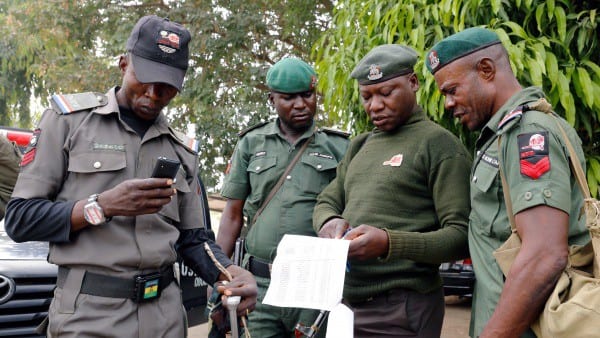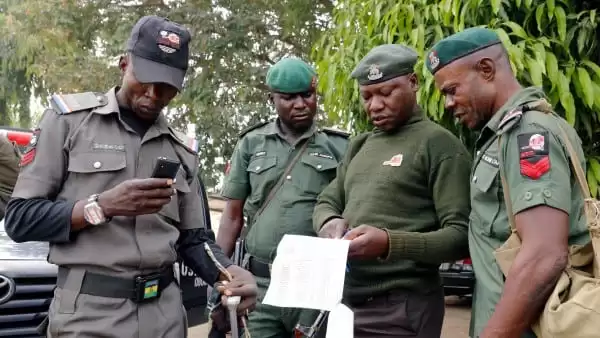

Transparency International has released a survey showing that the police, legislature and the judiciary are among the most corrupt institutions in Nigeria.
The TI, in the publication of the 10th edition of the Global Corruption Barometer (GCB) – Africa, on Thursday, said corruption in African countries was hindering economic, political and social development.
In Nigeria, the organisation partnered Practical Sampling International for the survey, sampling 1,600 people from April 26 to May 10, 2017.
The data showed that the police topped the list of most corrupt institutions in the country at 69 per cent, followed by ‘Members of Parliament’ (60) and local government officials (55).
Others were government officials (54), judges and magistrates (51), business executives (44), presidency (43), non-governmental organisations (40), traditional leaders (35) and religious leaders (20).
The survey indicated that 47 per cent public service users had paid a bribe to the police in the previous 12 months, while 44 per cent had contributed to overall bribery rate in that period.
Others were IDs (38), utilities (34), public schools (32), public clinics and health centres (20).
Asked if the government was doing a good or bad job of fighting corruption, 59 per cent indicated ‘good’, 40 per cent said ‘bad’ and one per cent said ‘don’t know.’
The U.S.-based driver training company Zutobi analyzed road safety worldwide and found South Africa stays last in driving danger since…
The Basketball Africa League (BAL) returns for its 2025 season with exciting changes and developments. Since 2019 the NBA-linked basketball…
The Somali president supports their military forces to eliminate the threats from Al-Shabaab, ISIS, and Al-Qaeda. The Somali National Army…
UAE President Sheikh Mohamed bin Zayed Al Nahyan held talks with President Faustin Archange Touadéra of the Central African Republic…
African football teams struggle intensely in the World Cup Qualification rounds to earn their place on the international football stage.…
The journey toward the 2026 FIFA World Cup is rapidly intensifying for all African teams, who now hold a historical…
This website uses cookies.